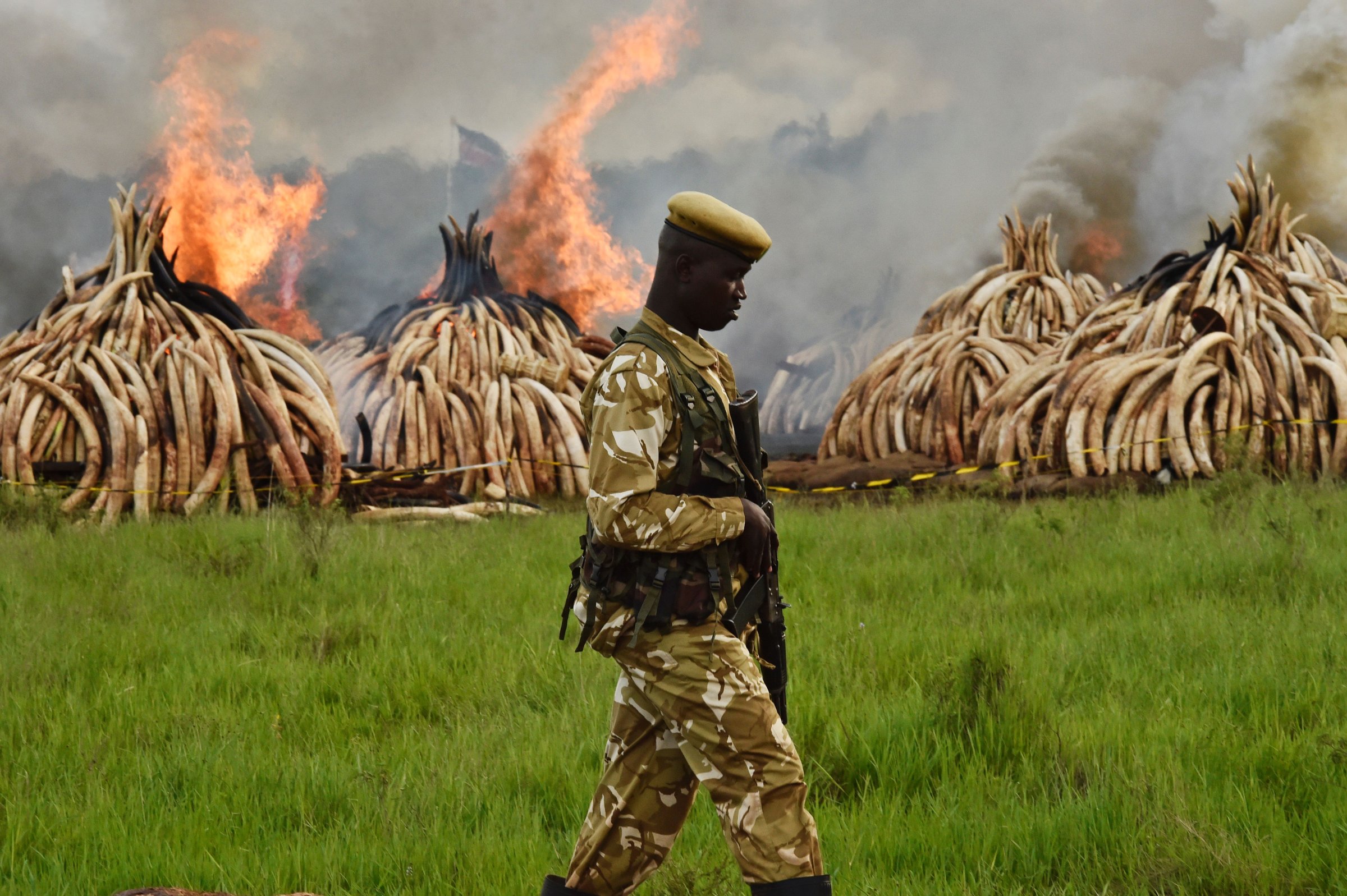
Hunting has a devastating effect on animal populations — and the impact could worsen as development spreads in the future, according to research done in developing countries.
Researchers found that hunting on average leads to an 83% reduction in mammal populations within 25 miles of hunter access points like roads and towns. The findings, published in the journal Science, come as researchers in the developing world expect hunters to gain access to new areas thanks to millions of miles of roads expected to open in the coming decades. In the study, researchers call for expanded legal protection for animal habitats and increased law enforcement focus on illegal hunting.
“Strategies to sustainably manage wild meat hunting in both protected and unprotected tropical ecosystems are urgently needed,” said study author Ana Benítez-López, a researcher at Radboud University in the Netherlands. “This includes monitoring hunting activities by increasing anti-poaching patrols and controlling overexploitation via law enforcement.”
Hunting has also hit bird populations hard, with the practice leading to a 58% decline in population numbers within 4.5 miles of hunter access points. Researchers attribute the difference between the effect on birds and mammals to the amount of meat they provide. Commercial hunters are more likely to target mammals because they provide more meat, they said. Data for the new research came from more than 175 studies conducted in the tropics of developing countries.
Of course, hunting is far from the only threat faced by vulnerable animals across the globe. Loss of habitat due to human development, invasive species and climate change have all contributed to a loss of biodiversity across the globe. In turn, a loss of species diversity harms humans in a number of ways, by reducing pollination and pest control that supports agriculture and by allowing more carbon dioxide into the atmosphere.
More Must-Reads From TIME
- The 100 Most Influential People of 2024
- Coco Gauff Is Playing for Herself Now
- Scenes From Pro-Palestinian Encampments Across U.S. Universities
- 6 Compliments That Land Every Time
- If You're Dating Right Now , You're Brave: Column
- The AI That Could Heal a Divided Internet
- Fallout Is a Brilliant Model for the Future of Video Game Adaptations
- Want Weekly Recs on What to Watch, Read, and More? Sign Up for Worth Your Time
Write to Justin Worland at justin.worland@time.com